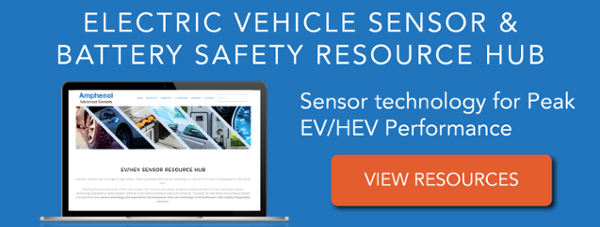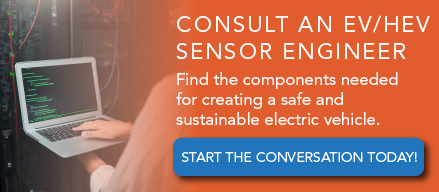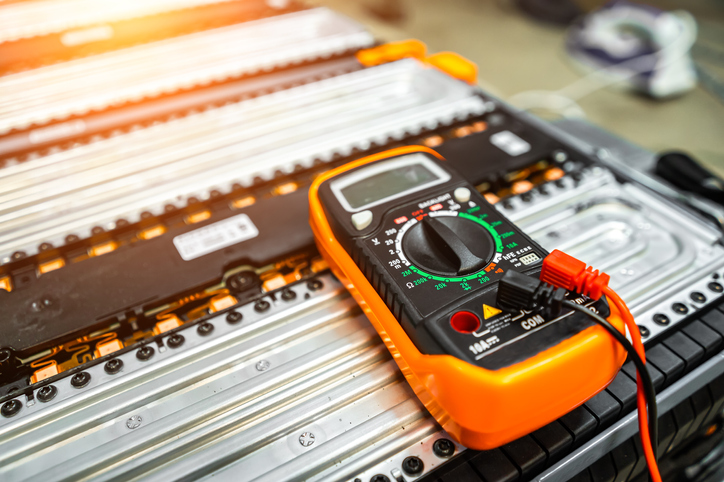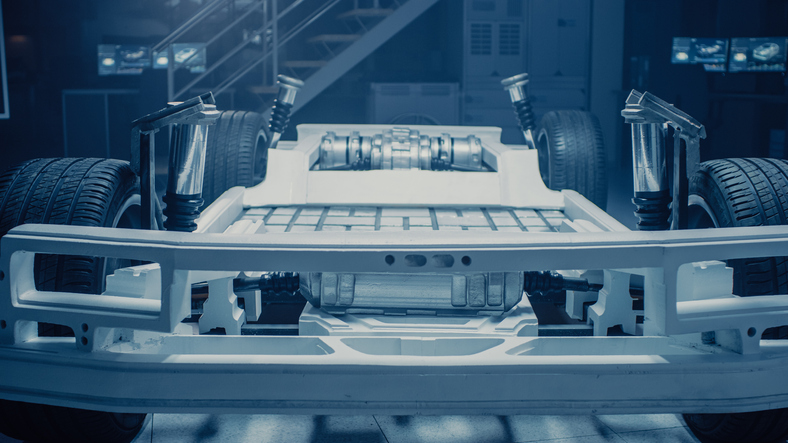EV Design: The 'Must' Details to Share With Your Sensor Manufacture

In any manufacturing operation, what often derails production schedules?
The answer: Miscommunications leading to the delivery of incorrect components.
Amidst increasing demand for electric vehicles (EVs) and the emerging governmental policies to phase out internal combustion engine vehicles, automotive manufacturers are grappling with challenging market conditions. Disruptions in the supply chain and workforce shortages necessitate meticulous planning, constant monitoring, and adaptability in manufacturing processes
Even minor disruptions in production workflows can have significant repercussions. Any sort of delay triggers a cascade effect along the production line, incurring substantial time and financial losses.
When outsourcing automotive components – such as EV sensors – being as upfront as possible and providing necessary details for your EV design and manufacturing needs keeps your project on track from the beginning.
5 “Must” EV Design Details for Your EV OEM Sensor Manufacturer
As an electric vehicle manufacturer, you are constantly balancing the rapid pace of EV development and innovation against tight timelines to deliver vehicles.
When working with an OEM sensor manufacturer for EVs, essential details to share about the components used in your EV design include:
- Intended application
- Program timeline
- Requirements
- Prototypes
- Compliance standards
1. Intended Application
When engaging with an OEM sensor manufacturer, you’re the expert on your project. As such, you’ll know more about your EVs and which sensor technology is needed. Understanding how sensors will be used is critical for manufacturers to design and build EV sensors that will meet your demands.
With the knowledge of the intended application, a sensor manufacturer can offer valuable insights and develop a better end product.
Designing the best sensor also requires understanding the environment in which it will be used, including:
- Sensor Environment
- Potential exposure to heat or electrical noise
- Connectivity to power sources
Learn About Our Suite of EV Sensors:
2. Program Timeline
OEM sensor manufacturers need to know your timeline to ensure they can meet the deadlines that align with your electric vehicle design and production needs. Sensor manufacturing is involved and must follow a rigid process to meet quality standards, including:
- Design
- Prototyping
- Manufacturing
- Testing/Validation
Without understanding when you need your order, a sensor manufacturer is left to guess — something you don’t want to do with any of your electric vehicle components. When the details are unclear, it might mean your order gets put on the back burner for one that’s more urgent while the EV sensor manufacturer waits for more information.
With the continuing supply chain issues making it challenging to get raw materials and components, EV manufacturers need to work collaboratively with any supplier to stay on schedule.
You’ll also want to take into account the cost of accelerated timelines. Raw materials are already the major cost driver in EV sensor manufacturing. Speeding up delivery accelerates the procurement of materials, which can greatly influence the final price.
3. Requirements
Sensors need to measure physical variables, and every EV brand has different ranges and specs for what they need. You need to be ready to engage in deep technical discussions on product performance — engineer to engineer — with your sensor company.
Designing and building the right sensor for your application requires talking about key design considerations such as:
- Size
- Temperature range
- Responsiveness
- Longevity
- Accuracy and precision standards
- Environmental Factors
This information is especially important when your project calls for custom-designed sensors.
4. Prototypes
Before going into full-scale production and placing an order, getting a prototype of your auto sensor to complete a test run with the product goes a long way toward ensuring you’ll get exactly what you need. When requesting a prototype from an automotive sensor manufacturer, note the level of testing needed and any specific parameters the sensor should meet.
Functional prototyping will add time to your delivery dates, but it can also mitigate risk in mass production. Developing working prototypes helps validate the concept and identify any design issues or modifications that are needed.
5. Compliance Standards
Electric car design requires adherence to strict compliance standards from the government, the automotive industry, and company standards for sensors. Depending on your internal requirements, you may require sensor manufacturers to go beyond set standards.
If there are any specific regulations you need to meet, tell the EV sensor manufacturer. Failing to do so can result in getting sensors that do not meet or are unable to meet your standards. While sensor manufacturers must ensure they meet governmental standards, if you have additional requirements, make sure you detail them to avoid costly recalls.
Optimizing EV Sensor Procurement
The more detailed you can be in working with your EV sensor companies, the better results you’ll get. Providing the necessary information upfront about your EV design saves you from:
- Needless back and forth conversations
- Causing costly project delays and missed deadlines
- Receiving a product that doesn’t meet your needs or standards
Ultimately, developing a streamlined procurement process helps your company function in a market that continues to deal with challenging supply chains and remains volatile due to even small impediments.
Getting the Most | Partnering with an OEM Sensor Manufacturer
Manufacturing in today’s climate is a far cry from what it was even five years ago. Detail-oriented planning matters more than it ever has – and that includes sourcing EV sensors.
Providing an OEM sensor manufacturer with all the information they’ll need to fulfill your order guarantees there will be no difference between the sensors you order vs. the sensors you receive.
What Are Your EV Sensor Needs?
Speak to one of our engineers today!





